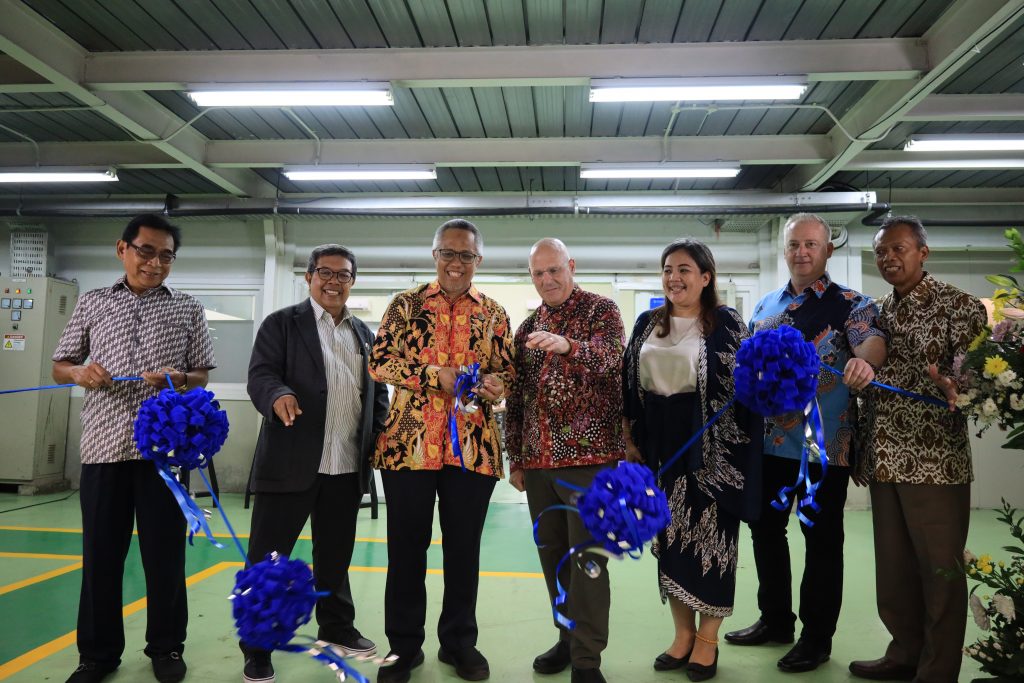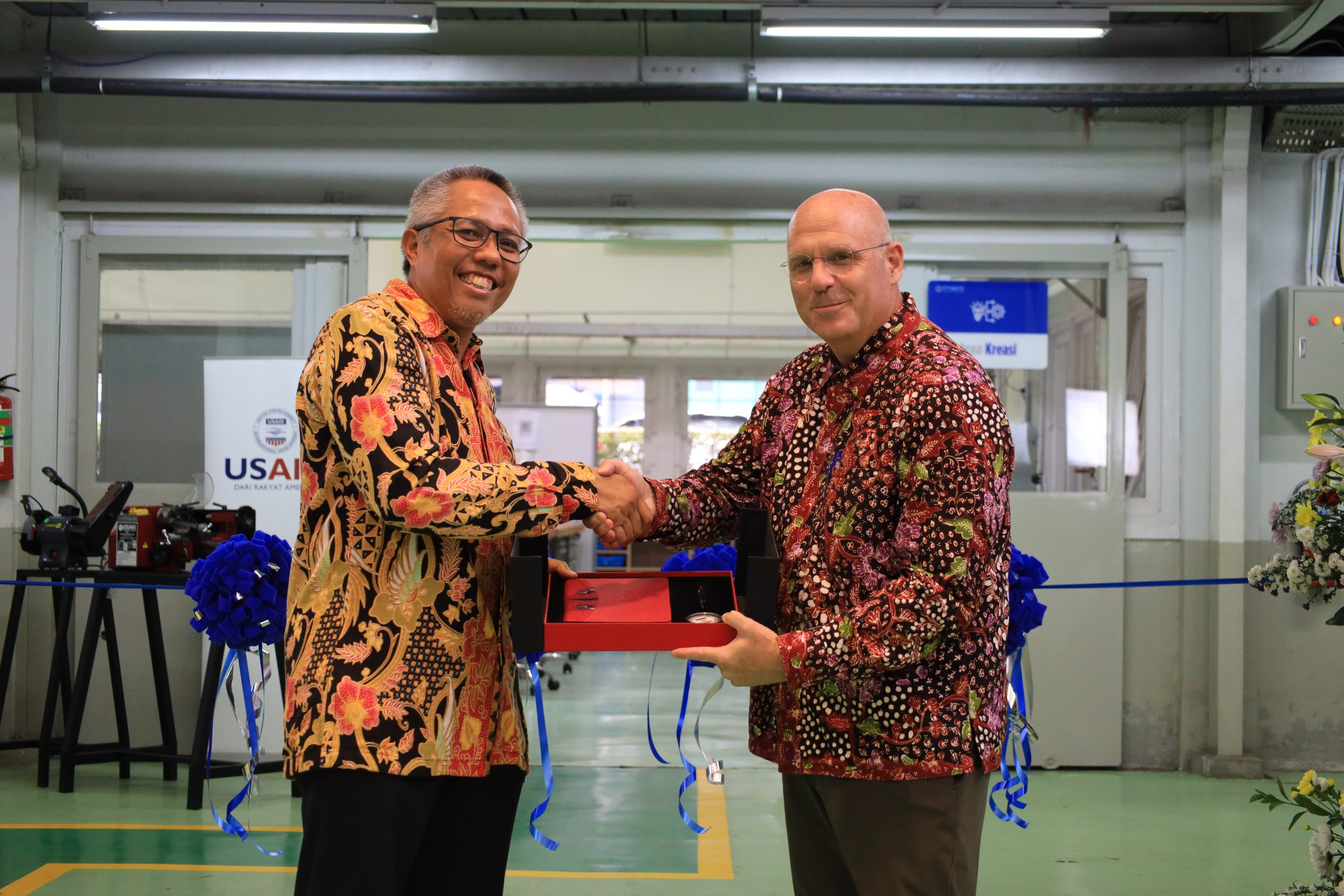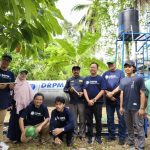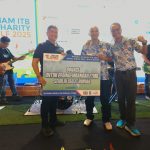Makers Innovation Space, USAID-FTMD ITB Collaboration: Driving Innovation and Entrepreneurship
Bandung – Faculty of Mechanical and Aerospace Engineering (FTMD) at ITB, in collaboration with USAID-HEPI, have officialy launched the Makers Innovation Space (MIS) ITB. The event was attended by notable figures such as Jeffrey Cohen, USAID Indonesia Mission Director; Jeffrey Goss, Vice Rector of ASU; Prof. Dr. Ir. Tatacipta Dirgantara, Dean of FTMD ITB; Dr. Abdul Rahman, USAID-HEPI Country Director; Ir. R. Sugeng Joko Sarwono, Ph.D., Head of the ITB Institute for Innovation and Entrepreneurship Development; and Ir. Susilo Siswoutomo, Chairman of the Solidarity Forever Foundation, along with FTMD ITB’s academic community.
The event included a ribbon-cutting ceremony by Dean FTMD, Prof. Tatacipta, and USAID, Director Jeffrey Cohen. The Makers Innovation Space, also known as the Creative, Innovation, and Prototyping Facility, is the result of a collaboration between USAID-HEPI, Arizona State University (ASU), and FTMD ITB. Located in the Production Engineering Laboratory building, the facility is equipped with state-of-the-art technology to foster innovation and bring the ideas of students, faculty, and other ITB academic members to life.

The main goal of the Makers Innovation Space is to cultivate a culture of innovation and entrepreneurship, providing the resources and support for students to develop their ideas. The inauguration of MIS marks an important collaboration between higher education institutions in Indonesia and the United States, aligning with Indonesia’s ambition to improve education quality and prepare students for the workforce.
In his speech, Prof. Tatacipta stated, “The Makers Innovation Space is a dream come true. We have dreamed of providing a creative rapid prototyping facility for students, and when we learned that Arizona State University, through the USAID HEPI program, was doing this, we were very excited to join this program.”
The Makers Innovation Space is a significant investment in Indonesia’s future. By equipping students with tools, resources, and guidance during their studies, they will be able to realize their ideas. “USAID is proud to be part of fostering innovation and creativity through partnerships between academia, business, and government,” added Jeff Cohen, USAID Indonesia Director.
MIS is also equipped with advanced facilities, including 3D printers, laser cutters, electronic prototyping devices, and more. This dynamic environment allows students, faculty, and researchers to initiate and merge ideas, create prototypes, and develop solutions to real-world challenges. MIS will also facilitate interdisciplinary collaboration and provide hands-on learning experiences.
Through MIS, students are expected to gain essential experience in designing and creating products and learning from failures. The facility enables students to address challenges or problems through engineering design, prototyping, and final completion stages.
Jeffrey Goss from ASU stated, “Through the USAID Higher Education Partnership Initiative (HEPI), we are honored to partner with our colleagues in Indonesia to build this MIS. Together, we can accelerate innovation, drive economic development, and tackle pressing social challenges through the power of education and collaboration.”
The opening of MIS coincides with the 75th anniversary of bilateral relations between the Indonesian and United States governments, highlighting the synergy between the two countries in enhancing education quality and promoting innovation. This partnership is expected to continue and thrive in the future.







